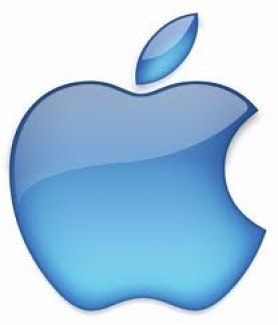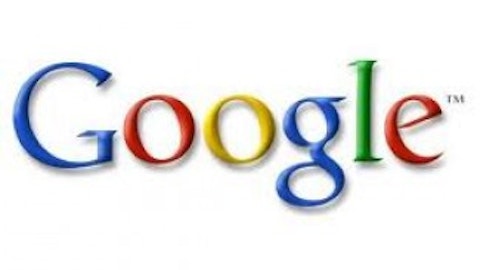
The competition
Yahoo! Finance lists Google Inc (NASDAQ:GOOG), Hewlett-Packard Company (NYSE:HPQ), and Research In Motion Ltd (NASDAQ:BBRY) as the main competitors to Apple. Ironically, Yahoo! Finance rarely lists these companies as each others’ competitors. This provides investors with solid evidence that Apple is a major force across several different aspects of the information technology revolution.
Two of these businesses seem to pose little threat to Apple Inc. (NASDAQ:AAPL); but the third is a titan in the new age of digital communications and marketing. It is also a powerful brand name. Assessing a fair value to a stock price entails comparing its current valuation to both its strong and weak competitors.
Apple versus Google
The most formidable of the listed competitors to Apple is Internet giant Google Inc (NASDAQ:GOOG), with its massive presence in the market for search engine and email applications. Google is also working diligently to expand its presence in the mobile device market.
In a comparison of projected earnings growth over the next five years, Google and Apple Inc. (NASDAQ:AAPL) are expected to achieve annual rates of 15.7% per year and 14.3% per year, respectively. Even though the five-year earnings growth projections are similar, Google Inc (NASDAQ:GOOG) trades at a price equal to 23.24 times estimated 2013 earnings; yet, Apple’s 2013 P/E is only 10.82.
Google also is currently valued at approximately 17.5 times free cash flow, while Apple only carries a valuation of 7.28 times cash flow.
Apple Inc. (NASDAQ:AAPL) is currently trading at about half the valuation of Google based on several common metrics. Does it really make sense for two of the top technology brands in the world to trade at such disparate prices?
Is Apple only worth the same as its weakest competitors?
One of the early participants in the mobile device market was Research In Motion, which later became Research In Motion Ltd (NASDAQ:BBRY). At one time, its products were runaway successes and seemed to be everywhere. Those days have faded into a distant memory, and its market share and its profitability and forward prospects have plummeted.
At this time, Research In Motion Ltd (NASDAQ:BBRY) is projected to lose $0.58 per share for the year ending February 2014 and $1.01 per share for the year ending February 2015. In contrast, the consensus earnings projections for Apple are $39.29 per share for the fiscal year ending September 2013 and $43.75 per share for the year ending in September 2014.
Apple’s net margins of 21.2% have more than doubled those of Research In Motion Ltd (NASDAQ:BBRY) over the past five years. It is hard to imagine any rational under which an investor could prefer owning BlackBerry stock over that of Apple Inc. (NASDAQ:AAPL).





